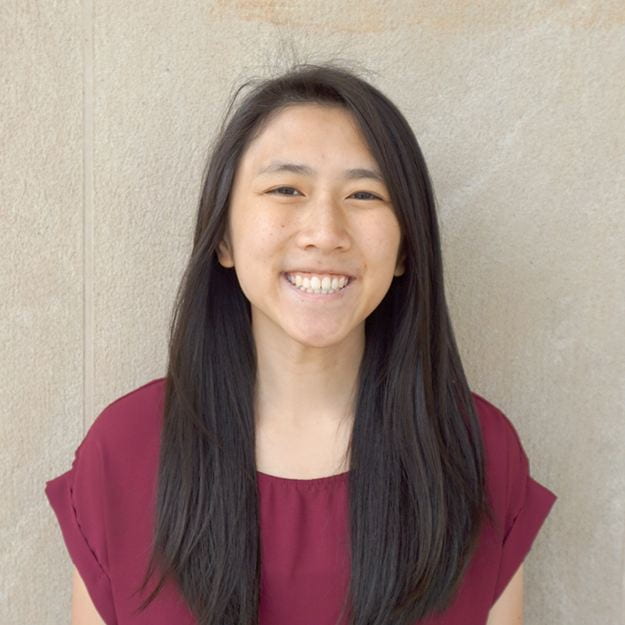
With involvement in Civic Scholars, WashU Undergraduate and Graduate Workers’ Union (WUGWU), Asian and Pacific Islanders Demanding Justice (APIDJ), and Abolish WUPD, senior Jessica Yu is no stranger to student activism.
In high school, she got involved in a community organization for Asian youth, which exposed her to social justice and community-centered initiatives.
As these issues became more important to her, she was drawn to getting involved in organizing as a first year student at WashU, which eventually led her to join APIDJ. The group centers itself as a social and political space for Asian and Pacific Islanders to build community and create dialogue.
“Asian folks are not usually seen as a political or activist body but there are people within the community who really want to do those things,” Yu said. “And when we do, it’s really powerful.”
Coming from a low-income Asian immigrant neighborhood in Portland, Oregon, another issue that was important to her was ensuring a living wage for all workers. As a member of WUGWU, she got involved in the fight for a $15 minimum wage and free childcare for all University employees early on. In 2019, after the group camped outside of Brookings Hall, the Chancellor’s house and Mudd Field for several weeks, Washington University announced their plan to raise the minimum wage for regular employees and contract workers by 2021.
More recently, WUGWU held an action on October 8, calling for the reform of the St. Louis Metropolitan Police Department with other local advocacy groups.
Abolish WUPD, another student-led group that Yu has gotten involved in, held a demonstration on the East End steps, on October 24, to further advocate for the abolition of the Washington University Police Department.
Yu said that she would want to see more recognition and support of student advocacy efforts from the university.
“A lot of the good social change that’s happened at the University has been because of student activism, and I think the University never actually really acknowledges it or they institutionalize it.”
Yu is also a member of Gephardt’s Civic Scholars Program, in which students are selected and given funding to develop a civic summer of their choosing. Given the uprisings that resulted in the deaths of George Floyd, Breonna Taylor, and countless other Black people, Yu felt a sense of urgency to pivot her Civic Summer to include dedicated efforts toward building APIDA community and spaces for dialogue. This summer, she chose to center her focus around addressing anti-Blackness within the Asian community and helped lead 12 workshops in APIDJ aimed to give attendants the tools to discuss anti-Blackness and provide them the tools to enact meaningful change.
Yu expressed her gratitude for the program while acknowledging the privilege that accompanies it. “It’s also really, really important to recognize that a lot of this work is not [only] done by people who are in Civic,” Yu said. “There are so many activists in our university community that are not in Civic and are often overlooked.” She also spent the summer interning for Deneb Stars, a program for low-income students at WashU.
Within the Civic Scholars Program, Yu also found a mentor in Theresa Kouo, the Assistant Director for Civic Engagement Education at Gephardt. Kouo was one of the first Asian American woman instructors that Yu had ever had, which was instrumental for her.
“It was great to see someone who looks like me doing that type of work and caring about that type of work,” Yu said.
With many WashU students coming from privileged backgrounds, Yu encouraged other WashU students to engage more deeply with the issues they care about. She said this was especially important given the relationship between WashU and the St. Louis community and the gentrification that has resulted from it.
“We got our rankings in St. Louis at the expense of Black folks and because of that, our education here will always be on their backs,” Yu said. “I suggest for WashU students, if you care about something, don’t just post about it. Go out and go protest because there’s so many actions that are happening.”
Yu said that while protesting is not always the best decision for everyone, she urged non-Black, non-immunocompromised students to truly reflect on the reasons why they might stay at home.
“You have to internally reflect whether or not that’s the right decision for you, but make sure you’re asking yourself questions like, ‘Am I just using COVID as an excuse to not go out? [Would] I be out there if COVID wasn’t there?’”